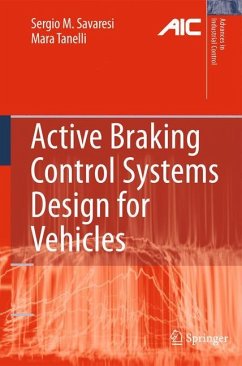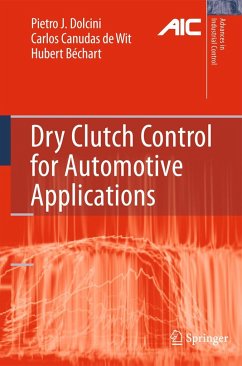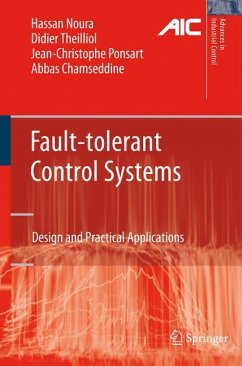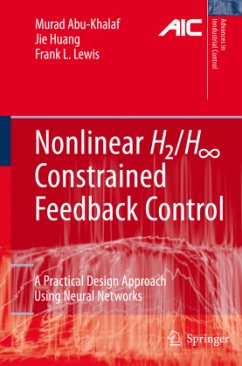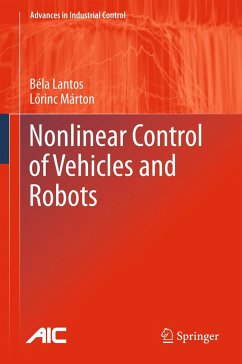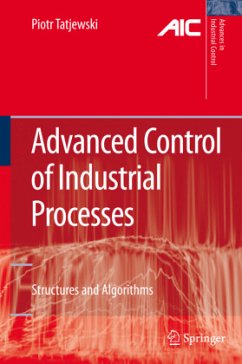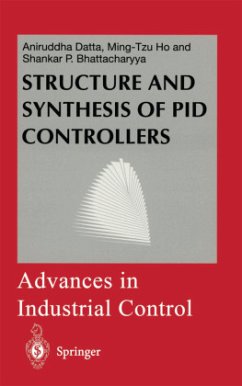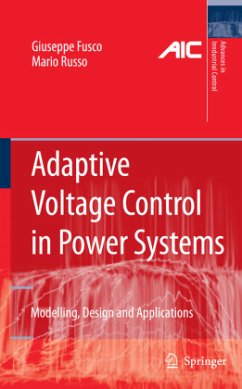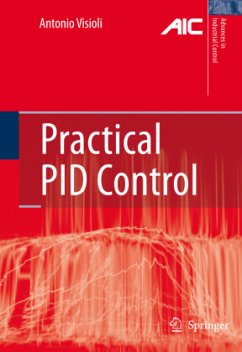
Control of Fuel Cell Power Systems
Principles, Modeling, Analysis and Feedback Design
Versandkostenfrei!
Versandfertig in 1-2 Wochen
130,99 €
inkl. MwSt.
Weitere Ausgaben:

PAYBACK Punkte
65 °P sammeln!
The problem of greenhouse gas release during power generation is widely acknowledged. Fuel cells are electrochemical devices offering clean and efficient energy production and their control is a crucial factor in making them viable for extensive use in every-day technology.
In Control of Fuel Cell Power Systems the application of fuel cells in automotive powertrains is emphasized because of the contribution to global CO2 emissions made by ground vehicle propulsion and because of the challenge presented by the control problems. Features:
- Overview of the physical principles and control objectives and difficulties associated with the implementation of fuel cells.
- System-level dynamic models derived from the physical principles of the processes involved.
- Formulation, in-depth analysis and detailed control design for the control of the cathode oxygen supply for a high-pressure direct hydrogen fuel cell and control of the anode hydrogen supply from a natural gas fuel processor.
- Multivariable controllers that attenuate restraints caused by lack of sensor fidelity or actuator authority.
- Real-time observers for stack variables that confer redundancy in fault detection.
- Examples of the assistance of control analysis in fuel cell redesign and performance improvement.
- Downloadable SIMULINK® model of a fuel cell for immediate use supplemented by sample MATLAB® files with which to run it and reproduce some of the book plots.
Primarily intended for researchers and students with a control background looking to expand their knowledge of fuel cells, this book will also appeal to practicing fuel cell engineers by the simplicity of its models and the application of control algorithms in real case studies. The coverage of control design will benefit scientists dealing with the electrochemical, materials and fluid-dynamic aspects of fuel cells.
In Control of Fuel Cell Power Systems the application of fuel cells in automotive powertrains is emphasized because of the contribution to global CO2 emissions made by ground vehicle propulsion and because of the challenge presented by the control problems. Features:
- Overview of the physical principles and control objectives and difficulties associated with the implementation of fuel cells.
- System-level dynamic models derived from the physical principles of the processes involved.
- Formulation, in-depth analysis and detailed control design for the control of the cathode oxygen supply for a high-pressure direct hydrogen fuel cell and control of the anode hydrogen supply from a natural gas fuel processor.
- Multivariable controllers that attenuate restraints caused by lack of sensor fidelity or actuator authority.
- Real-time observers for stack variables that confer redundancy in fault detection.
- Examples of the assistance of control analysis in fuel cell redesign and performance improvement.
- Downloadable SIMULINK® model of a fuel cell for immediate use supplemented by sample MATLAB® files with which to run it and reproduce some of the book plots.
Primarily intended for researchers and students with a control background looking to expand their knowledge of fuel cells, this book will also appeal to practicing fuel cell engineers by the simplicity of its models and the application of control algorithms in real case studies. The coverage of control design will benefit scientists dealing with the electrochemical, materials and fluid-dynamic aspects of fuel cells.
The series Advances in Industrial Control aims to report and encourage technology transfer in control engineering. The rapid development of control technology has an impact on all areas of the control discipline. New theory, new controllers, actuators, sensors, new industrial processes, computer meth ods, new applications, new philosophies ... , new challenges. Much of this development work resides in industrial reports, feasibility study papers and the reports of advanced collaborative projects. The series offers an opportu nity for researchers to present an extended exposition of such new work in all aspects of industrial control for wider and rapid dissemination. Fuel cell power systems is a new and exciting industrial area which is re ceiving considerable commercial investment as a future energy technology. The IEEE Spectrum magazine New Year issue of 2004 cited this area as one whose development and progress should be observed closely over the coming years. Successful application of fuel cell technology will depend on many fac tors not the least of which being how consistently their performance can be controlled. This Advances in Industrial Control monograph by Jay Pukrush pan, Anna Stefanopoulou and Huei Peng is a timely contribution to the area. As the authors so rightly say in their Preface, control engineers have different requirements from modelling, experimental studies and simulation work for designing a good control system and this monograph presents a control-orien tated approach to these topics in the fuel cell power system field.






